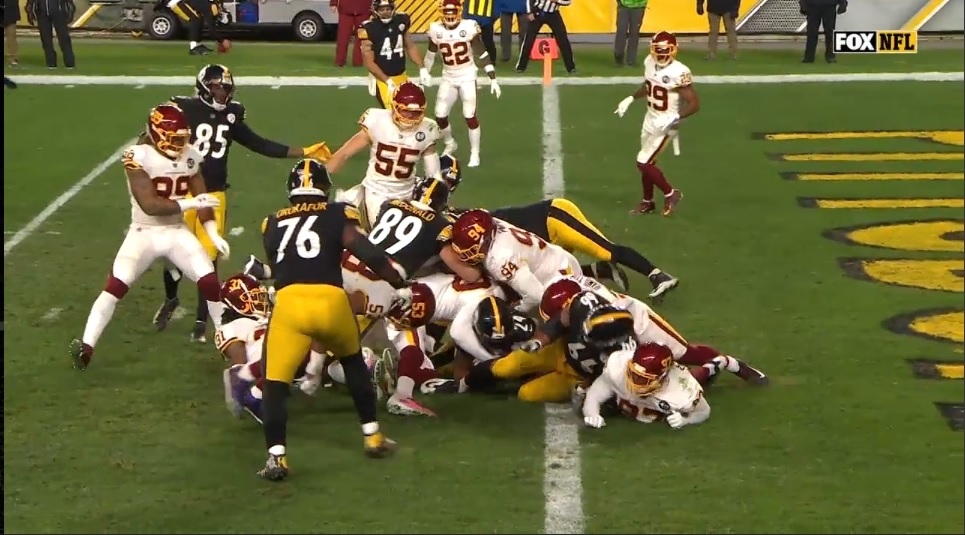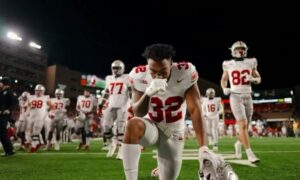In a Twitter thread yesterday, football analyst Warren Sharp put together the case for why the Pittsburgh Steelers — and teams in general — shouldn’t spend a first round pick on a running back.
He starts by pointing out the Steelers’ recent history of addressing the position.
Pittsburgh has used several picks on drafting mid-round runners, starting with James Conner in 2017. They followed that up with Jaylen Samuels in the fifth round in 2018, Benny Snell in the fourth round in 2019, and Anthony McFarland Jr. in the fourth round in 2020. Only one of those picks came during the first two days, but Pittsburgh’s yet to find a long-term answer despite repeated investments.
Sharp then said the focus should be on improving the offensive line, not the running back.
Those numbers showing that none of their backs have had success, especially from a run success or EPA standpoint. You could argue the backs just haven’t been good enough, or that a guy like McFarland was a rookie with a limited sample size. But there’s no question the offensive line was a big issue in 2020. Now, that group lost Maurkice Pouncey and have only replaced him with B.J. Finney. Finney isn’t the long-term answer at the position.
Sharp then looked at the history of teams who make repeated investments in the position.
This one is a little harder to argue, and starts getting in the weeds. It’s a highly specific and narrow list he’s putting together, teams who drafted running backs in the first four rounds in consecutive years, then drafted a first-round RB the very next year, and then correlating that next back as doomed to fail. The next Trent Richardson or Ryan Mathews. The Chargers’ struggles had little to do with problems on offense — they remained top five in points per game for Mathews’ first two seasons. It was the defense that fell off, dropping from 11th to 22nd in the span of two years. Richardson was part of the horrible-drafting Browns regimes, and both players were taken much higher than #24 overall, making their value much worse. Richardson went third, Mathews went 12th.
Finally, Sharp notes past Super Bowl winners didn’t have elite ground attacks.
Sharp’s overall argument is a bit muddled and probably overly-specific that it starts to lose its overall point. Which is, teams don’t need to spend a high draft pick on a running back to have a good run game or to win a Super Bowl. That’s fair to say. Of course, based on the Steelers’ recent history, as he points out, finding a mid-round RB hasn’t been the ticket, either.
There is of course merit in the idea of valuing offensive line over running back. I’m of the mindset of building teams inside out. But based on the Steelers’ roster, this probably comes down to taking a running back versus taking a center. Both need to be addressed. For Pittsburgh, it’s a question of whether they can get a talented running back or center in the second or third rounds. Based on these draft classes, it’ll be easier to get a center. Najee Harris, Travis Etienne, nor Javonte Williams are likely to be around come pick #55.
The bottom line is the Steelers need to improve their run game. They’re not even at the “serviceable” mark Sharp notes with past Super Bowl winners. That will be done by upgrading at center and running back. It’s just a question of which comes first.








